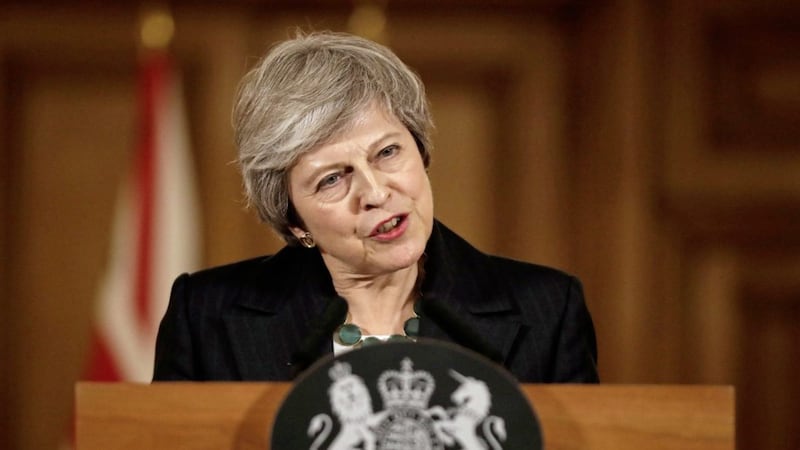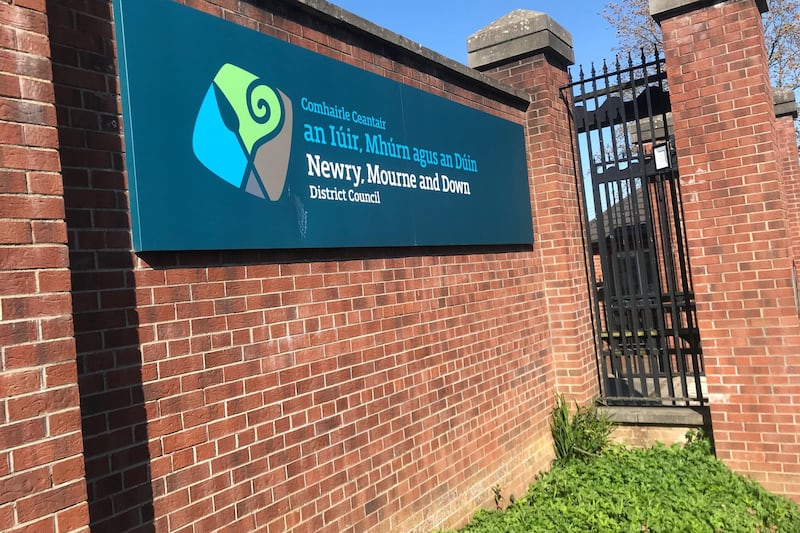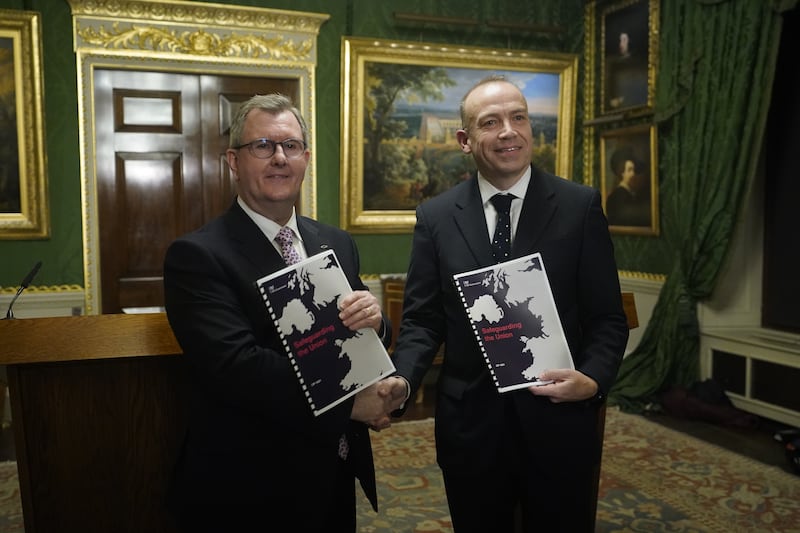THE confidence and supply deal propping up the Tories' minority government looked to be unravelling last night as the DUP's MPs abstained on key votes at Westminster.
Arlene Foster's party failed to back all amendments to the Finance Bill, bar one tabled by Labour.
The move is seen as a stark warning to Theresa May as the British prime minister continues to seek backing for the draft Brexit withdrawal agreement.
The DUP is opposed to the deal on the basis that it creates regulatory differences between Northern Ireland and Britain. However, the EU-UK deal appears to have widespread support among the north's business community.
Under the term of the confidence and supply agreement signed in June last year, the DUP would be expected to give the Finance Bill its full support.
The Conservatives defeated the Labour amendment but by a mere five votes.
The party's Brexit spokesman Sammy Wilson said the move was intended to send a "political message" to the prime minister after she breached a "fundamental" assurance that Northern Ireland would not be separated constitutionally or economically from the rest of the UK.
"We had to do something to show our displeasure," he told the BBC.
Meanwhile, the DUP's Westminster team will return to full strength today as Ian Paisley returns to the green benches following an unprecedented 30-day ban.
In August, an investigation found the North Antrim MP had failed to register two luxury family holidays to Sri Lanka.
He also carried out paid advocacy on behalf of the Sri Lankan regime.
Theresa May has insisted that her draft Brexit deal puts Northern Ireland in a "fantastic position" for the future.
In an opinion piece published in the Belfast Telegraph, the British prime minister claimed the region's constitutional status within the UK had been guaranteed in the agreement.
"The challenge of Brexit has always been to continue our deep trading links and security co-operation with the EU in our new relationship, whilst freeing us to take advantage of the opportunities, such as an independent trade policy," she wrote.
"This deal strikes that balance, and puts Northern Ireland in a fantastic position for the future."
While the DUP and other unionists remain opposed to the deal, Mrs May highlighted the business and agricultural organisations in Northern Ireland that have voiced support, including the CBI, Federation of Small Businesses, Institute of Directors, Chamber of Commerce and Ulster Farmers' Union.
Ms May said the deal provided "clarity and certainty" for Northern Ireland businesses.
"It ensures they will have time to adjust to our new relationship, avoids a cliff edge, and therefore protects jobs and investment," she said.
Mrs May stressed the importance to Northern Ireland of policing and security co-operation with the EU.
She said the issue was a "crucial element" of ongoing negotiations between the UK and EU on the long-term future relationship.
The Briitsh prime minister added: "Under this deal the future is certainly bright for Northern Ireland. It will be a gateway to both the EU market and the rest of the UK's market. With a business-friendly regulatory regime, and strong representation in Westminster, it will remain an attractive place to live, invest and do business."
Ms May acknowledged that there had been a lot of focus on the border "backstop" and said she "understood and share some of the concerns that have been expressed".
But she said three points made the backstop an "acceptable insurance policy", namely:
- the opportunity to extend the implementation period instead of entering the backstop;
- the British government's pledge to keep regulations consistent across the whole of the UK in order to minimise any checks or controls and ensure no divergence between Northern Ireland and Great Britain;
- the government's view that the backstop is "expressly temporary", with a mechanism by which it can be terminated.
Concluding the article, Ms May wrote: "I recognise that the referendum caused division in our country, sometimes even between friends and families, but I firmly believe that progress over the next few weeks can mark the beginning of the healing process to bring communities and our country back together.
"As prime minister, I am determined to do my job and deliver the best deal possible. It will then be time for MPs to do their job and to choose: move forward with this deal in the national interest, or go back to square one with all the chaos that would entail."








